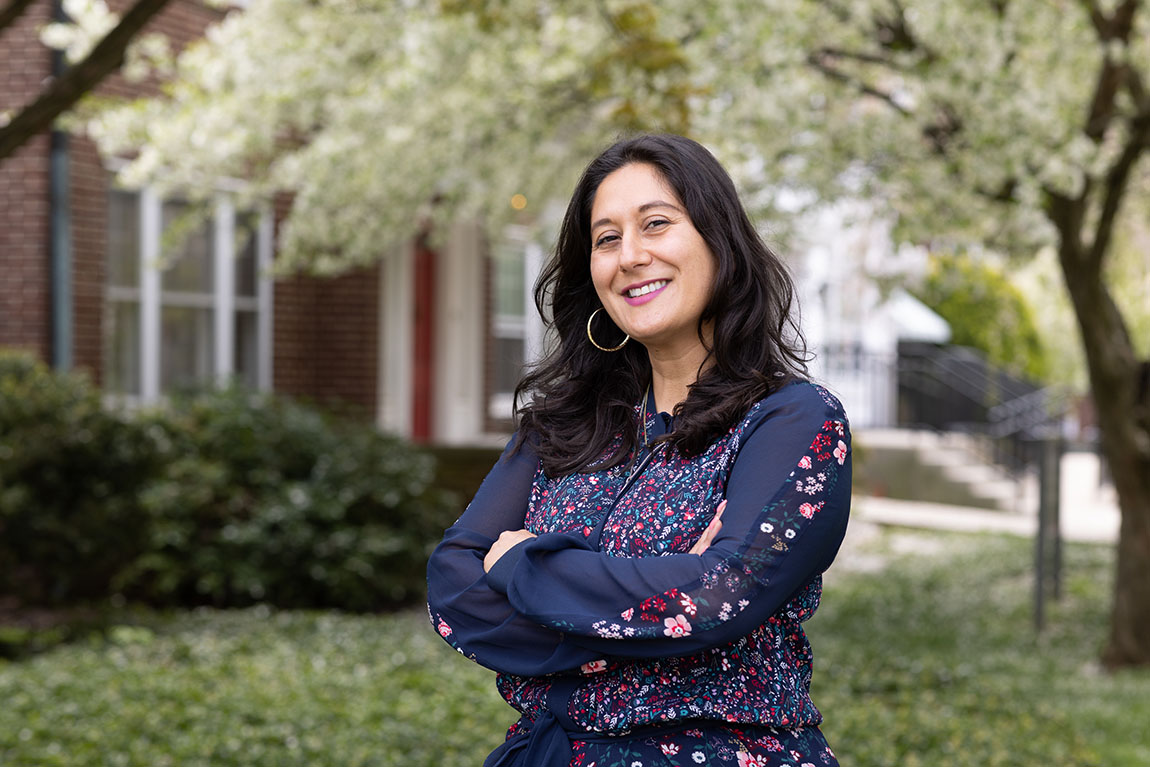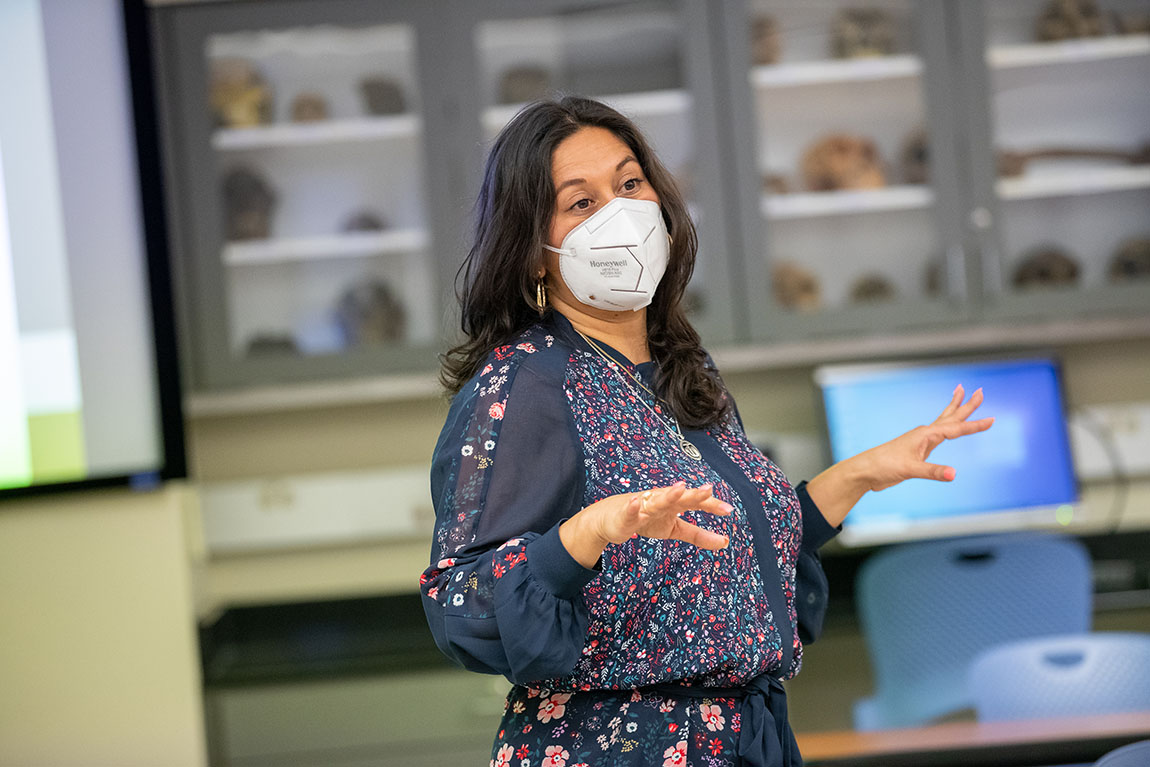What It Means to Belong
Associate Professor of Sociology Sahar Sadeghi drew upon her own experiences as inspiration for research on the Iranian diaspora that will be published as a book this fall.By: Meghan Kita Tuesday, July 5, 2022 07:43 AM
 Associate Professor of Sociology Sahar Sadeghi. Photos by Marco Calderon
Associate Professor of Sociology Sahar Sadeghi. Photos by Marco CalderonOne of the courses Associate Professor of Sociology Sahar Sadeghi teaches is the senior seminar, in which majors complete research on a topic of their choosing. The field of sociology—which deals with culture, social and structural systems and human relationships—is broad, so Sadeghi provides students a prompt; this year and last, their projects had to be related to the pandemic. She also gives students this advice: “Do something that’s near and dear to your heart. In sociology and anthropology and a lot of other fields, you know more than you think you know. Your interests and experiences are really important.”
That’s how she’s approached her own research in the emerging field of Iranian diaspora studies. As a Ph.D. student at Temple University, her dissertation was on the experiences of Iranian immigrants in Germany and California. Sadeghi, whose parents are Iranian immigrants, moved from Germany to the Bay Area when she was 12.
“I had an inkling that issues of belonging and social citizenship were just not the same [in the two places],” she says. “Regardless of whether it’s a farce or not, the United States prides itself on being a land of immigrants. It has an active immigration policy and has recruited immigrants to come here. Mostly because of economic reasons, the U.S. has always been an immigrant-receiving nation. Germany is not. They’re a refugee-accepting society.”

To conduct the research, she spent six months in Germany and six months in California, the state where the majority of Iranian immigrants reside, conducting interviews. She learned that national and global political context and policies matter a great deal in a community’s ability to be able to feel like a participating member of a society and that social membership is deeply impacted by both domestic and global events and politics. She published an article based on her dissertation in the Journal of Ethnic and Migration Studies in 2015, the fall after she joined Muhlenberg as a visiting professor.
Sadeghi continued the work by returning to Germany to interview some of the same people in the summer of 2016, during the refugee crisis in Europe. She wanted to explore how Germany’s acceptance of 1.2 million refugees from Afghanistan, Syria and Iraq, more than any other European nation, had changed the Iranian immigrants’ experiences and perceptions of belonging.
“Most of them told me, ‘I don’t want these refugees here. We were once accepted. Now these new refugees are coming,’” says Sadeghi, who published this research in the journal Ethnic and Racial Studies in the fall of 2018. “The data I collected in the summer of 2016 was extremely rich. It confirmed what I said in my dissertation and added another layer.”
After the election of Donald Trump, Sadeghi returned to California three times to interview some of the same immigrants she’d interviewed for her dissertation. She asked how the new administration’s policies (such as the “Muslim ban” and additional sanctions against Iran) affected their experiences. Just before conducting her final interviews in 2018, she attended the American Sociological Association conference, where she met an editor from NYU Press who was interested in her research, specifically in the follow-up work.
“Follow-up research and qualitative research is very hard. You’re dealing with humans and their stories. You try to use the same sample, but you have attrition,” says Sadeghi, noting that she was able to re-interview about half of the 64 participants she surveyed for her dissertation. She believed in her research—even continuing it throughout her time as a contingent faculty member without job security—and it will be published as a book, Radicalizing and Politicizing Iranians, with NYU Press this fall.
“The one takeaway I have for developing scholars is you have to go with your own instincts,” she says. “Confidence is actually a big part of this.”
It’s a lesson she tries to impart to students, through her role as a mentor for the new Graduate School Preparatory Program for Students from Underrepresented Backgrounds as well as in the classroom. She’s noticed students’ lack of confidence across the board, regardless of their social, educational and financial backgrounds. She sees her role as two-fold: For one, she must educate students about research methods, cultural and structural systems (and their flaws) and other cornerstones of her discipline. Simultaneously, she wants to nurture students’ self-assuredness, as both scholars and agents of social change.
“Students who come to our department, they’re super passionate people. Who wants to constantly come into the classroom and find out what’s wrong with the world? When they come into the major and minor, they already want to be a force for good,” she says. “By the time they’re in senior seminar, they’ve found their voice. They’re coming into their own. They’ve developed these original ideas. Their writing has gotten better. You feel like, ‘My work here is kind of done.’”
